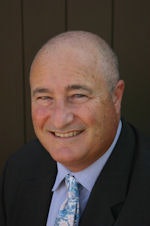
Welcome to the wonderful new world of tomorrow in which accountable care organizations (ACOs) will bring better, cheaper, coordinated healthcare. At least that's the line being used by the government, which seeks to lower healthcare costs; large employers, which seek to lower healthcare costs; and insurance carriers, which seek to lower healthcare costs.
ACO proponents claim they will deliver this better product through aligning facilities and providers. To quote a recent report released by the Healthcare Financial Management Association: "Today's forward-thinking hospitals and physicians recognize there's only one way to successfully move forward: together."
 |
| Healthcare business and legal affairs expert Mark F. Weiss. |
But this is a familiar story, played out in alternators instead of appendixes. It is exactly analogous to the way auto manufacturers in the 1980s "aligned" their suppliers through processes such as GM's Program for the Improvement and Cost Optimization of Suppliers (PICOS).
The publicly announced purpose of those programs was to work more closely with the company's suppliers to reduce costs and to improve product quality and on-time delivery -- a better product at a lower cost. Through "partnership" and "relationship" and "cooperation" that involved sharing the suppliers' cost and production data, the manufacturers promised a new world in which they and their suppliers would jointly profit from their long-term, high-volume arrangement.
Compare the stated purpose of the PICOS-type auto parts programs with the stated purpose of an ACO as set forth in the Patient Protection and Affordable Care Act: A program "that promotes accountability for a patient population and coordinates items and services under Medicare parts A and B, and encourages investment in infrastructure and redesigned care processes for high quality and efficient service delivery."
The reality of the automobile manufacturers' programs was, of course, very different. A wolf in sheep's clothing, the real goals were to gain control over suppliers as the manufacturer played one against the other, pushing for lower and lower prices guaranteed over longer and longer periods. Through the guise of assisting with a supplier's production processes, the manufacturer was able to gather more data on the supplier's true costs; once in possession of that data, the manufacturer further commoditized the products so that quality was no longer the issue -- the only issue was price. The manufacturer was then able to demand even greater price breaks.
Again, look to the ACO structure: specifically, to its data reporting elements. Medicare makes an initial payment to the ACO, which reports back in respect of cost and quality issues. Medicare will then determine if cost and quality goals were met; if so, a bonus payment is made to the ACO. But over time, Medicare (and you can substitute the private insurers who will clone this system for themselves) will be in the position to cram down lower and lower initial payments based on more and more data on what it actually costs to provide the services -- a downward spiral leading to the same place PICOS pushed the auto suppliers: insolvency.
Radiologists have been the target of PICOS-like negotiation tactics for years, most without even knowing it. Office-based physicians, especially primary care practitioners who will be actively targeted by hospitals in their move to build hospital-controlled ACOs, lack significant experience in being subjected to PICOS-style tactics.
Successful negotiation with hospitals, whether in respect of ACOs, exclusive contracts, or any other "alignment," requires PICOS-busting strategies and tactics.
Think about this, preferably before the hospital CEO invites you to the executive suite to have a chat to get you know you better. He is your friend ... right?
By Mark F. Weiss
AuntMinnie.com contributing writer
January 31, 2011
Mark F. Weiss is an attorney who specializes in the business and legal issues affecting radiology and other physician groups. He holds an appointment as clinical assistant professor of anesthesiology at University of Southern California's Keck School of Medicine and practices nationally with the Advisory Law Group, a firm with offices in Los Angeles and Santa Barbara, CA. Mr. Weiss provides complimentary educational materials to our readers. Visit www.advisorylawgroup.com for his free newsletter. He can be reached by e-mail at www.advisorylawgroup.com.
Related Reading
The Profit Center: Part 17 -- Turn regulatory lead into strategic gold, November 15, 2011
The Profit Center: Part 16 -- Countering pressure in hospital negotiation, October 8, 2010
The Profit Center: Part 15 -- Success requires managing risk, August 13, 2010
The Profit Center: Part 14 -- Accountable care organizations: Accountable to whom? June 10, 2010
The Profit Center: Part 13 -- Radiology as factory work? April 13, 2010
Copyright © 2011 Mark F. Weiss



















